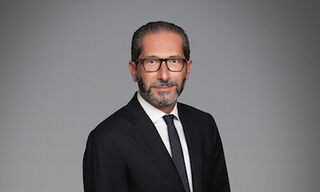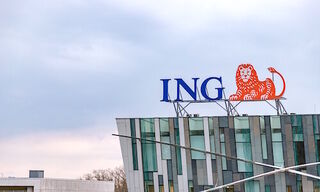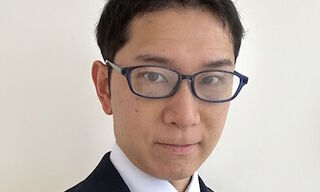Offshore law firm Forbes Hare, which provides BVI and Cayman Islands legal and fiduciary services, is set to open a new office in Singapore from today. The Asian Wealth Times recently caught up with Sam Robertson, who will co-head the office, to ask him how the business was developing and how he was settling into Asia.
AWT: Why did Forbes Hare choose Singapore? Did the firm look at other Asian financial and legal hubs?
Forbes Hare’s Singapore office will be its first presence in Asia itself. Our firm has ancillary service business which include a New Zealand trust company, but this is the first Asian office for the law firm. Most Caribbean offshore firms have historically chosen Hong Kong for their first regional presence. While Hong Kong is a great place, we felt that for various reasons Singapore made more sense for Forbes Hare. Our aims in Asia are broader than just China, and we feel that Singapore offers something a bit different in terms of business opportunities. It has both a dynamism and international reach that suits us well, and although it is early days, we have been greatly encouraged by our experiences so far.
AWT: What would you say are the professional strengths Forbes Hare is bringing into the Asian marketplace?
We are a young firm – we have our tenth anniversary this year. I am privileged to work with fantastic colleagues, both within the firm and in our onshore professional counterparts. We acknowledge the truism that excellent client service at a fair price is what drives business for professional service firms – and the only way of competing in the long run - and we think we have both the competence, the range of experience, and work ethic to deliver.
Of course, the firm has areas where it has acknowledged strengths. We have long been one of the leading Caribbean practices for litigation and insolvency work, but in the last few years we have augmented this with strong offerings in M&A, corporate finance and private client work. We like to think we are personable, unstuffy and commercial, and with offices in London and the Caribbean we can offer a round-the-clock service when required. Whilst we acknowledge that clients in the region have a good choice, we would like to persuade them to consider using Forbes Hare.
AWT: Throughout Asia there is a significant generational shift unfolding across the families who originated the wealth: how can the families cope with this? What are the most urgent challenges to the generations inheriting the wealth or taking over the reins of the family business?
Closely held businesses are often developed and run by a manager or management team that both owns the business but, understandably, focuses its attention firmly on the success of the enterprise. Patriarchs and matriarchs often have concerns about future generations, and I don’t think there is anything either new or unique to Asia in this. As trusted advisors we can assist with the establishment and maintenance of structures that cater for inter-generational aspirations of the business owners, and these can be tailored to the specific concerns of anti-prodigality, multiple family provision, asset protection and so forth. It obviously depends on the circumstances. Of course, it is difficult to fix dysfunctional offspring, and that is usually beyond the remit of the lawyer. We can, however, try to protect assets from delinquent dissipation, and try to establish structures that encourage heirs to behave themselves. Sometimes younger generations can seem to be in a bit of a hurry, but if there is a will to bind them to an inter-generational business scheme, there is often a way of achieving this. Careful estate-planning is critical to long term dynastic success.
Then again, if the intergenerational differences are insurmountable, we have plenty of experience helping settlors and beneficiaries in those circumstances.
AWT: Which countries in the Asia-Pacific region do you expect to see the most demand for your services coming from?
The BVI and the Cayman Islands are by far the leading Caribbean jurisdictions for offshore Asian work. Mainland China, Hong Kong and Taiwan have been prolific users of both since the Nineties, but there has also been strong demand in South East Asian jurisdictions such as Indonesia and Singapore itself. We expect demand in the region to continue, as clients look for cost effective, tax-neutral jurisdictions where they can, when needed, retain internationally experienced lawyers and other service providers to fulfil their needs. The BVI and the Cayman Islands tick all the boxes in this regard, and we hope that in opening an office in Singapore, our South East Asian clients (old and new) will appreciate that we are doing all we can to ensure that this continues to be the case.
AWT: In all the mass of legal/regulatory changes that there has been in recent years, including here in Asia, can you pick out examples of changes that you see as particularly significant for your business?
Onshore reporting obligations such as those triggered by FATCA are obviously important for offshore service providers, as are CFC [Controlled Foreign Corporation] rules, where they have been introduced. Russia introduced its “De-Offshorization” laws last November, but that was completely overshadowed by the Ukraine Sanctions regime. It is hard to point specifically to any one thing. Like others, we have to stay current to remain compliant and, as we are only interested in compliant business, that is what we will continue to do.
Both the BVI and the Cayman Islands have allowed their laws to evolve to meet the demands of their users, and we are confident that in both jurisdictions, clients will find that many of their needs – and possibly even things that they may not have considered – have been deliberated and covered in an attractive legislative package.
AWT: A great many of the UHNW clients in Asia are now international with business and personal interests across several jurisdictions. In your business, what sorts of issues come up most frequently in dealing with such clients?
I think the first point to make is that such clients would usually be making an excellent choice in considering the BVI and the Cayman Islands for their structures. The BVI Business Company is the world’s pre-eminent international business company for good reasons. We also believe that both the Cayman Islands and BVI have offerings in investment funds and private client that are surpassed by nobody, and it is unsurprising that they are so popular with UHNW clients. Further, both jurisdictions offer private trust companies and facilitate similar structures than can be used advantageously by UHNW clients.
It is hard to answer your question with much detail, as clients have such diverse needs. However I would say that issues such as forced heirship, expropriation risk, kidnap or blackmail risk, estate taxation and settlor control are perennial concerns of clients. Again, the important thing is to take proper advice in establishing structures. We believe that both the BVI and the Cayman Islands cater well for such concerns.




















